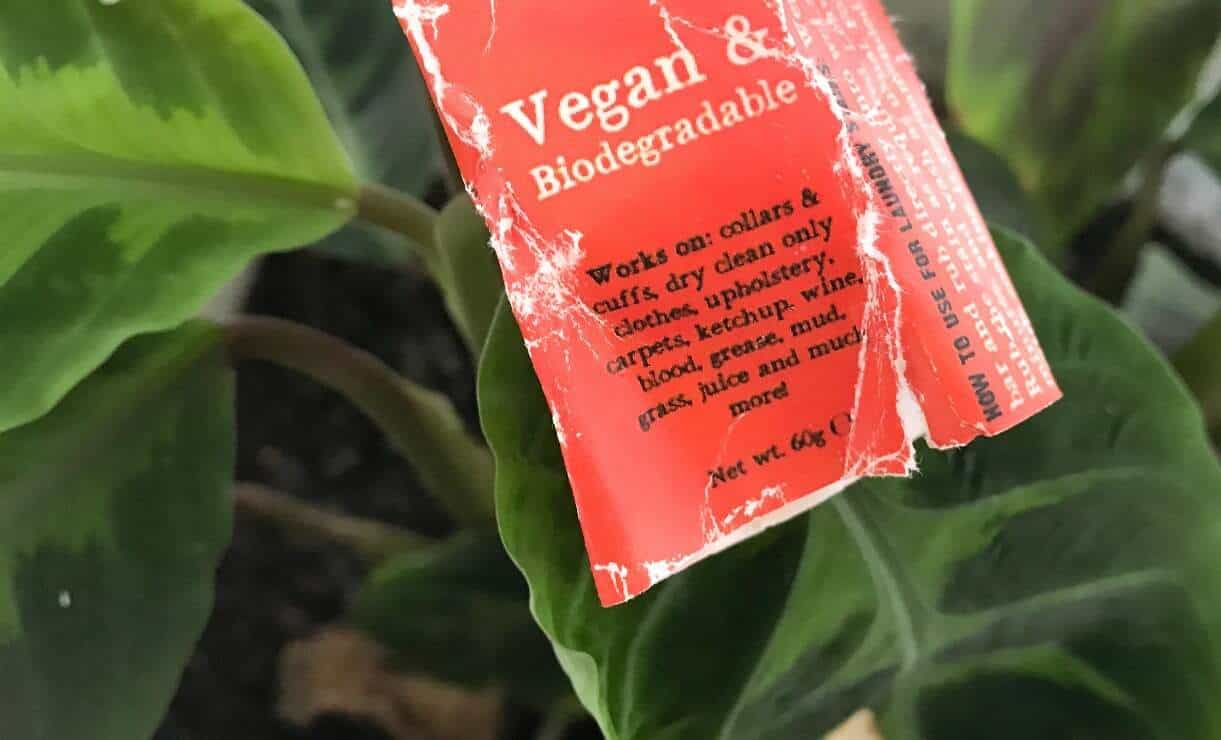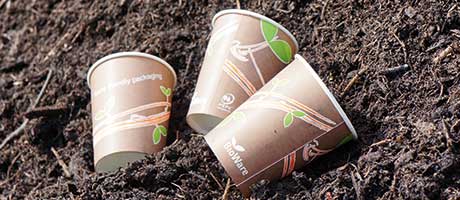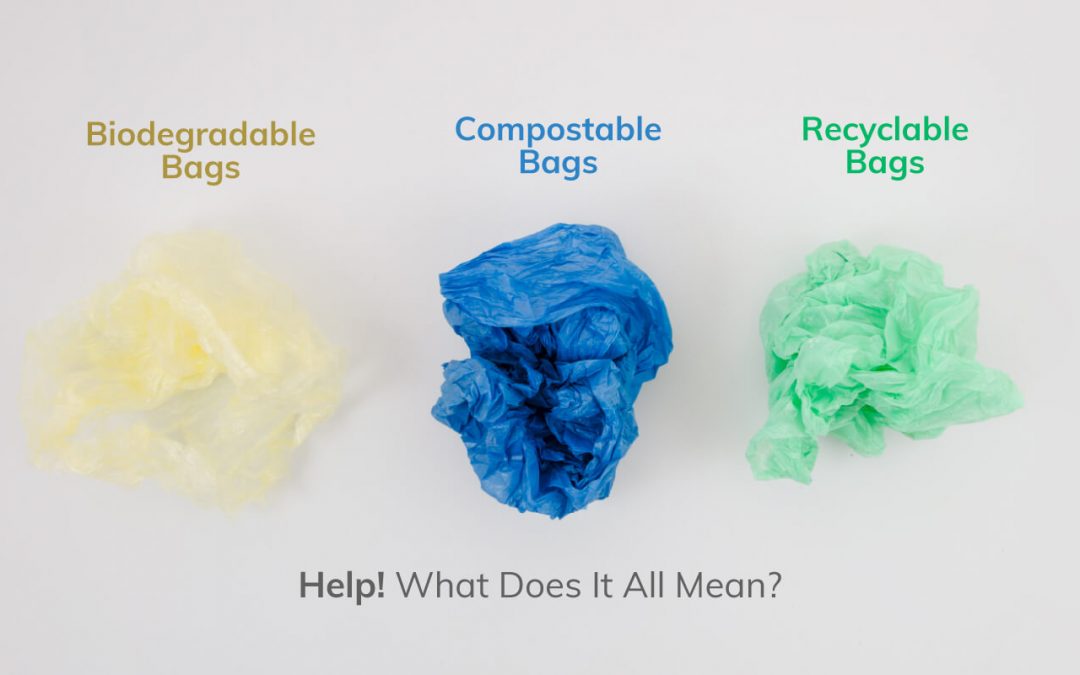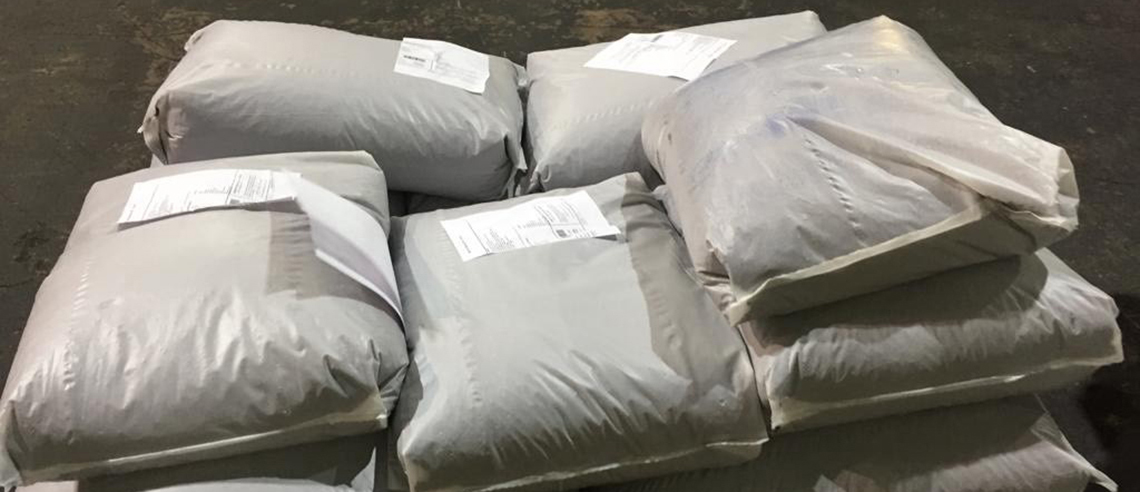Do Compostable Bags Break Down In Landfill How Long Straws Take To
Hey there! Let's talk about compostable materials and their importance in our daily lives. Did you know that we can now use compostable phone cases and plastic bags that break down naturally? It's a great way to reduce waste and help the environment. Let's dive into the fascinating world of compostable materials!
What Is a Compostable Phone Case?
Have you ever wondered what happens to your old phone cases when you upgrade to a new one? Most of the time, they end up in landfills, taking hundreds of years to decompose. But now, we have a solution - compostable phone cases!

Compostable phone cases are made from biodegradable materials that can break down naturally in composting conditions. They are designed to be environmentally friendly, and they can be broken down by microorganisms without causing harm to the planet.
Not only do compostable phone cases help reduce waste, but they also provide the same level of protection for your phone as traditional cases. So you can keep your phone safe and contribute to a greener future at the same time!
Compostable Plastic: 5 Things Everyone Should Know

Compostable plastic is gaining popularity as people become more aware of the environmental impact of traditional plastic. Here are five essential things you should know about compostable plastic:
- It's made from plant-based materials: Unlike regular plastic made from fossil fuels, compostable plastic is derived from renewable resources like cornstarch or sugarcane. This makes it a much more sustainable and eco-friendly option.
- It breaks down in composting conditions: Compostable plastic needs specific conditions to break down, such as heat, moisture, and microorganisms. When placed in a well-managed composting facility, it can decompose within a few months, significantly faster than traditional plastic.
- It reduces greenhouse gas emissions: Composting compostable plastic releases fewer greenhouse gases compared to traditional plastic that emits harmful chemicals during its decomposition process. By choosing compostable plastic, you're helping combat climate change.
- It requires proper disposal: To make sure compostable plastic breaks down correctly, it should be disposed of in industrial composting facilities. Tossing it into regular trash or recycling bins may not provide the necessary conditions for decomposition.
- It's not the same as biodegradable plastic: While compostable plastic is a type of biodegradable plastic, not all biodegradable plastics are compostable. Compostable plastic meets specific standards and certifications to ensure its environmentally friendly properties.
Now that you know these important facts, you can make more informed choices when it comes to plastic products and help protect our planet!
Do Plastic Bags Really Take 500 Years to Break Down in a Landfill?

We've all heard the alarming claim that plastic bags take 500 years to decompose in a landfill. But is it really true?
The answer is complicated. Traditional plastic bags, made from non-biodegradable materials like polyethylene, can indeed take hundreds of years to break down. In fact, they may never fully decompose. This is one of the reasons why plastic pollution has become such a significant environmental concern.
However, compostable plastic bags are designed to be a more sustainable alternative. They are made from biodegradable materials that can break down relatively quickly under the right conditions.
Compostable plastic bags require specific composting conditions, such as heat, moisture, and microorganisms, to facilitate decomposition. In an industrial composting facility, these bags can decompose within a few months, reducing their environmental impact significantly.
It's important to note that compostable plastic bags should not be mixed with regular plastic bags or disposed of in recycling bins. They need to be properly processed in designated composting facilities to maximize their environmental benefits.
Does Compostable Plastic Break Down in a Home Compost System?

If you're an avid composter and have a home compost system, you might be wondering if compostable plastic can be included in your compost pile. The answer depends on the type of compostable plastic and your home composting conditions.
Some compostable plastics are certified to break down in home compost systems, while others are designed for industrial composting facilities. It's essential to check the packaging or labeling of the compostable plastic products you intend to use.
In general, home composting conditions might not provide optimal conditions for the rapid decomposition of compostable plastic. These plastics often require higher temperatures and specific microorganisms to break down efficiently.
If you're unsure whether a specific compostable plastic is suitable for your home composting system, it's best to reach out to your local waste management or composting facility for guidance. They can provide you with accurate information on the types of plastics that are suitable for home composting.
Biodegradable vs Compostable: Breaking Down How Waste Breaks Down

The terms "biodegradable" and "compostable" are often used interchangeably, but they have distinct differences in how waste breaks down. Let's break it down for you:
Biodegradable: Biodegradable materials can break down naturally through the action of microorganisms over time. However, the term "biodegradable" alone does not specify the timeline or the conditions required for decomposition. Some biodegradable materials may take years to break down, while others might require specific environmental conditions to facilitate decomposition.
Compostable: Compostable materials are a specific subset of biodegradable materials. They are designed to break down into natural elements and contribute to the creation of compost. To be labeled as compostable, materials need to meet certain standards and certifications, ensuring their ability to break down within a specific timeframe and under specific composting conditions.
So, while all compostable materials are biodegradable, not all biodegradable materials are compostable. When looking for eco-friendly products, keep an eye out for the compostable certification to ensure the materials will break down efficiently.
Compostable Bags: What Are They Made Of and How To Compost Food Bags

Compostable bags are gaining popularity as a sustainable alternative to traditional plastic bags. But have you ever wondered what they are made of and how to compost them properly?
Compostable bags are typically made from plant-based materials such as cornstarch, sugarcane, or potato starch. These materials are biodegradable and can break down naturally in composting conditions, making them a great eco-friendly choice.
When it comes to composting food bags, there are a few things to keep in mind:
- Remove any food residue: Before composting a food bag, make sure to remove any leftover food or organic matter. This prevents contamination in the compost pile and ensures the compostable bag breaks down properly.
- Check the certification: Look for compostable bags that have been certified according to recognized standards. These certifications ensure that the bags meet specific requirements for compostability, such as breaking down within a certain timeframe and not leaving behind harmful residues.
- Choose the right composting system: Composting food bags is best done in a home composting system that reaches higher temperatures and provides the necessary conditions for decomposition. Industrial composting facilities are also suitable for composting these bags.
- Add in small pieces: To promote faster decomposition, consider tearing the compostable bags into smaller pieces before adding them to your compost pile. This increases the surface area and allows microorganisms to break them down more easily.
- Mix with other compostable materials: For optimal composting, mix your compostable bags with other compostable materials, such as food scraps, yard waste, and other compostable packaging. This creates a balanced compost mix and ensures efficient decomposition.
By following these guidelines, you can compost your food bags safely and contribute to the production of nutrient-rich compost for your garden.
Breaking Down the Barriers to Compostable Packaging

Compostable packaging is an innovative solution to reduce the environmental impact of traditional packaging materials. However, several barriers exist that hinder its widespread adoption:
- Infrastructure limitations: Composting facilities are not as widely available as landfill or recycling facilities. This limits the accessibility and proper disposal of compostable packaging for consumers.
- Confusion among consumers: The terms "compostable," "biodegradable," and "recyclable" can be confusing for consumers. Lack of clear labeling and education often leads to improper disposal, resulting in compostable materials ending up in landfills.
- Cost considerations: Compostable packaging materials are usually more expensive to produce compared to traditional packaging materials. This cost difference can deter some businesses from making the switch, especially for smaller enterprises.
- Compatibility with existing systems: Compostable packaging may require adjustments to existing waste management systems. This can involve sorting, collection, and processing infrastructure upgrades to ensure proper composting and avoid contamination.
- Sustainability of raw materials: While compostable packaging offers environmental benefits, the sustainability of the raw materials used must also be considered. Ensuring responsible sourcing and minimizing the overall environmental footprint is crucial.
Efforts are being made to address these barriers and promote the adoption of compostable packaging. As consumers, we can support this transition by choosing products packaged in compostable materials, advocating for clearer labeling and education, and properly disposing of compostable packaging in designated composting facilities.
Biodegradable Bags, Compostable Bags, and Recyclable Bags – Help! What's the Difference?

If you've ever felt confused about the differences between biodegradable, compostable, and recyclable bags, you're not alone! Let's clarify what sets these bags apart:
Biodegradable bags: Biodegradable bags are designed to break down into natural elements over time. However, the term "biodegradable" does not indicate a specific timeline or the conditions required for decomposition. These bags may break down in months or years, depending on various factors.
Compostable bags: Compostable bags, on the other hand, are made from biodegradable materials specifically designed to break down into compost. They require specific conditions, such as heat, moisture, and microorganisms, to decompose within a certain timeframe. Compostable bags contribute to the creation of nutrient-rich compost and are a more sustainable option.
Recyclable bags: Recyclable bags can be processed and turned into new products through recycling. They are typically made from materials such as paper, recyclable plastics like PET or HDPE, or fabrics like cotton or nylon. Proper recycling facilities and processes are required to ensure recyclable bags are transformed into new items instead of ending up in landfills.
It's important to note that not all bags labeled as biodegradable or compostable are created equal. Look for certifications and standards to ensure these bags meet specific guidelines and are genuinely environmentally friendly.
Does 'Compostable' Plastic Really Break Down?

The term "compostable" may make you wonder if compostable plastic truly breaks down as advertised. It's a valid concern, and let's shed some light on the matter.
Compostable plastic is designed to break down in composting conditions, which involve heat, moisture, and the presence of certain microorganisms. When compostable plastic is processed in industrial composting facilities that meet these conditions, it can decompose within a few months.
It's important to note that compostable plastic may not break down as rapidly or efficiently in home composting systems. Home compost piles often do not reach the same high temperatures and have limited microbial diversity compared to industrial facilities.
Furthermore, not all compostable plastics are created equal. Some may break down more easily than others, depending on the specific materials used and the manufacturing processes involved.
To ensure that compostable plastic effectively breaks down, it's crucial to dispose of it properly in industrial composting facilities. This allows the plastic to undergo the necessary decomposition process, minimizing its environmental impact.
Compostable Bags: Reducing Plastic Waste
Compostable bags are an excellent alternative to traditional plastic bags, offering a more sustainable choice for our everyday needs. By using compostable bags, we can make a positive impact in reducing plastic waste.
Here are a few reasons why compostable bags are beneficial:
- Reduced dependence on fossil fuels: Compostable bags are typically made from plant-based materials, reducing our reliance on fossil fuels used to produce traditional plastic bags. This helps mitigate climate change and promotes the use of renewable resources.
- Reduced plastic pollution: Compostable bags break down into natural elements, reducing the amount of plastic waste that ends up in landfills or as litter in our environment. They play a crucial role in preventing plastic pollution and protecting wildlife.
- Contribution to nutrient-rich compost: Compostable bags can be processed in composting facilities to create nutrient-rich compost. This compost can then be used to enrich soils and support sustainable agriculture.
- Incentive for sustainable practices: Choosing compostable bags sends a clear message to manufacturers and policymakers that sustainable alternatives are in demand. By supporting compostable options, we encourage the development of more eco-friendly
If you are looking for 6 Environment Benefits of Compostable Packaging – Ken's Commentary you've visit to the right page. We have 35 Images about 6 Environment Benefits of Compostable Packaging – Ken's Commentary like Do compostable plastics create microplastics?, Compostable Products that Break Down in Backyard Compost Bins - Naples and also How long do compostable straws take to break down? · EORTH. Here it is:
6 Environment Benefits Of Compostable Packaging – Ken's Commentary
 www.kenscommentary.org
www.kenscommentary.org compostable dispose
Do Compostable Bags Really Work?
:max_bytes(150000):strip_icc()/__opt__aboutcom__coeus__resources__content_migration__mnn__images__2013__05__BioBagCompostableBag-1a05a72e72f54bd1bbe24baaca06d093.jpg) www.treehugger.com
www.treehugger.com compostable
Do Compostable Plastics Create Microplastics?
 magazine.com.co
magazine.com.co Compostable Plastics Break Down In Less Than 22 Days In Real Life
 www.bioplasticsmagazine.com
www.bioplasticsmagazine.com composting compostable bioplastics kompostierung european wageningen impianto compostabile tagen industriellen industrielle renewable seedling weniger praxistest kunststoffe zersetzen kompostierbare organici rifiuti
Does 'compostable' Plastic Really Break Down? - YouTube
 www.youtube.com
www.youtube.com compostable plastic does break down
Breaking Down The Barriers To Compostable Packaging | Packaging Scotland
 packagingscotland.com
packagingscotland.com compostable packaging cups barriers breaking down containers bioware huhtamaki employing plastics bio such range food
Compostable Products That Break Down In Backyard Compost Bins - Naples
 naplescompost.com
naplescompost.com compostable compost break
How Long Do Compostable Straws Take To Break Down? · EORTH
 eorth.com.au
eorth.com.au eorth straws compostable
Compostable Bags
www.houstontx.gov
bags compostable versions sized each visit these houstontx solidwaste gov
New Way To Make Compostable Plastics Break Down More Easily - Tech
 www.techexplorist.com
www.techexplorist.com compostable plastics break
Compostable Plastic Breaks Down Faster Than Banana Peel - Agro & Chemistry
 www.agro-chemistry.com
www.agro-chemistry.com compostable chemistry agro
Why Compostable Plastics May Be No Better For The Environment
 phys.org
phys.org plastics compostable environment better why biodegradable claims benign quickly include reality break single end down into use they sa complex
BIODEGRADABLE BAGS, COMPOSTABLE BAGS, AND RECYCLABLE BAGS – HELP! WHAT
 www.ecologypkg.com
www.ecologypkg.com biodegradable bags mean does compostable recyclable help eco packaging admin
Cargill Introduces Fully Compostable Feed Bags To Help Reduce Its
 www.cargill.no
www.cargill.no cargill compostable footprint
Compostable Waste No Different From Plastic If It Ends Up In Landfill
 www.stuff.co.nz
www.stuff.co.nz compostable waste landfill stuff nz ends plastic different if packaging bags
Compostable Bags
www.houstontx.gov
bags
How Long Do Biodegradable Bags Take To Decompose? - BBC Science Focus
 www.sciencefocus.com
www.sciencefocus.com bags take long biodegradable decompose science
Biodegradable? Oxo-biodegradable? Compostable? Let’s Break Down The
 www.worldcentric.com
www.worldcentric.com biodegradable compostable oxo differences difference break down degrade let worldcentric
The ‘Break Down’ On Compostable And Biodegradable Packaging
 www.ecoandbeyond.co
www.ecoandbeyond.co biodegradable compostable
How To Break Down Biodegradable And Compostable Bags? - YouTube
 www.youtube.com
www.youtube.com (Oxo) Degradable, Biodegradable, Compostable - New Factsheet - Vegware News
www.vegware.com
degradable oxo biodegradable compostable vegware factsheet plastics recyclable recycling use
Biodegradable Vs Compostable: Breaking Down How Waste Breaks Down
 www.sustainablejungle.com
www.sustainablejungle.com biodegradable compostable vs down breaking waste differences mean does
How Well Do Compostable Bags Degrade?
www.thecoffeemachine.net
compostable degrade bags well organics bag kitchen
Compostable Vs Biodegradable Bags - East Waste
 www.eastwaste.com.au
www.eastwaste.com.au biodegradable compostable vs bags waste plastic au compost composting between green eco friendly difference jeffries guide facts living sa sustainable
How Long Does It Take For Shopping Bags To Break Down? | Stuff.co.nz
 www.stuff.co.nz
www.stuff.co.nz bags plastic down stuff does take long shopping break nz woolworths ban macbeth neil
Does Compostable Plastic Break Down In A Home Compost System? | Stuff.co.nz
 www.stuff.co.nz
www.stuff.co.nz compost
What Is A Compostable Phone Case? – Tech Evaluate
 techevaluate.com
techevaluate.com compostable decompose
Compostable Bags
www.houstontx.gov
bags compostable versions sized each visit these
Do Plastic Bags Really Take 500 Years To Break Down In A Landfill?
 slate.com
slate.com plastic bags break down slate take
Compostable Bags: What Are They Made Of And How To Compost Food Bags
 www.tinyecohomelife.com
www.tinyecohomelife.com compostable bags made them aim dispose correctly eco provide friendly option
Do Compostable Bags Really Break Down... Yes, They Do! - YouTube
 www.youtube.com
www.youtube.com How Well Do Compostable Bags Degrade?
 www.thecoffeemachine.net
www.thecoffeemachine.net degrade compostable bags well compost pak bag
Compostable Plastic: 5 Things Everyone Should Know
 pelacase.com
pelacase.com compostable plastic compost plastics know things everyone should biodegrade landfill
SAL Packaging » Biodegradable Bags
www.salpackaging.com
bags biodegradable packaging sal pile growing plastic support use there these
How Long Do Compostable Straws Take To Break Down | Plastic Free
 www.pinterest.com
www.pinterest.com eorth straws compostable
Compostable packaging cups barriers breaking down containers bioware huhtamaki employing plastics bio such range food. Do plastic bags really take 500 years to break down in a landfill?. Degradable oxo biodegradable compostable vegware factsheet plastics recyclable recycling use
Comments
Post a Comment